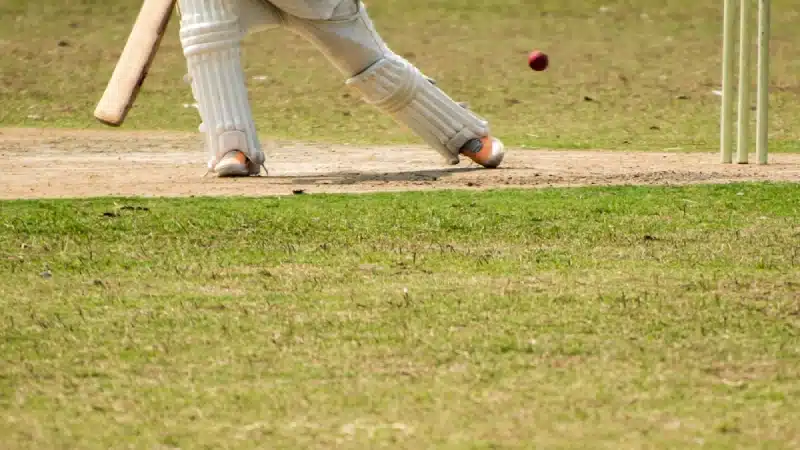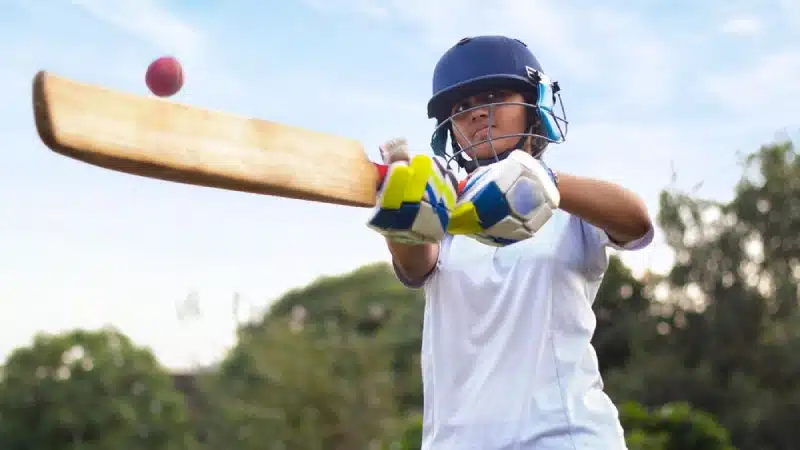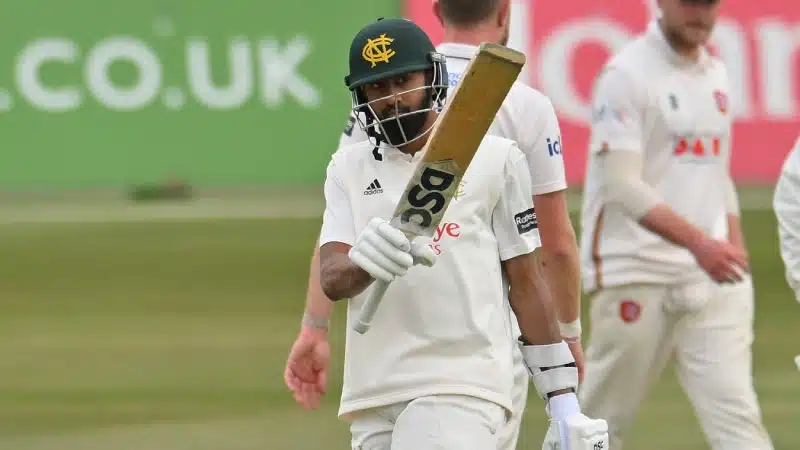
The Australia cricket team has won the ICC Men’s T20 World Cup once, defeating New Zealand by eight wickets in a high octane final at the Dubai International Stadium.
There have been seven T20 World Cups since the tournament’s inception in 2007, with Australia last getting close to getting their hands on the trophy in the 2010 T20 World Cup in the Caribbean, before their triumph in the UAE in 2021. With that in mind, here’s a recap of Australia’s performances in 20-over World Cups.
2007 ICC World T20: Australia suffer humiliating semi-final exit
Ricky Ponting and Co., fresh from winning the 2007 ICC ODI World Cup, began the tournament with an astonishing five-wicket loss to minnows Zimbabwe before bouncing back with an eight-wicket win over England in the group stages to march into the Super 8s.
Following a commanding nine-wicket victory against Bangladesh in their Super 8s opener, the Aussies fell to a six-wicket defeat to Pakistan before a 10-wicket win against Sri Lanka propelled them into the semi-finals.
However, in the semi-final against India, the Australian bowlers were at the mercy of a certain Yuvraj Singh. The Men in Blue, who opted to bat first, registered a score of 188/5 in 20 overs with Yuvraj smashing a 30-ball 70.
In reply, Australia were restricted to 68/2 in nine overs but their run-chase was revived thanks to a 66-run partnership between Matthew Hayden and Andrew Symonds. An impressive bowling spell from S Sreesanth (2/12 in four overs) condemned the Aussies to a 15-run loss against the eventual inaugural T20 World Cup champions.
2009 ICC World T20: Australia suffer group stage exit
Unlike the first T20 World Cup, the second edition of the tournament was a rather nightmare for Australia. With successive defeats to Sri Lanka and West Indies in their Group C encounters, the Aussies recorded their worst ever performance in any World Cup competition.
2010 ICC World Twenty20: Australia endure heartbreak in final
Australia’s 2010 T20 World Cup campaign was a redemption call following pre-mature exit in the 2009 edition. They won their group encounters against Pakistan and Bangladesh to qualify for the Super 8s as Group A winners.
Dominant wins against India, West Indies and Sri Lanka meant the Michael Clarke-led side qualified for the semi-finals for the second time in three editions.
Riding on Michael Hussey’s 24-ball 60, Australia got the better of Pakistan by three wickets to set up the first World Cup final against England since the 1987 ODI World Cup final.
England, who bowled first, restricted Australia to 147/6 in the allotted 20 overs with Ryan Sidebottom bagging two wickets at the cost of 26 runs. The Three Lions chased down the target in 17 overs, with Craig Kieswetter (63 runs) and Kevin Pietersen (47 runs) anchoring the batting in the seven-wicket victory.
2012 ICC World Twenty20: Australia succumb to another semi-final loss
The 2012 edition marked Australia’s successive appearance in the knockout stage of the T20 World Cup. With convincing wins over West Indies and Ireland, the Kangaroos qualified for the Super 8s with confidence.
Although they inflicted heavy defeats on India (nine wickets) and South Africa (eight wickets), George Bailey and Co.- who lost their final Super 8 match against Pakistan - made their way into the semi-finals by virtue of a superior net run rate.
The Australian bowling attack were taken to the cleaners as Chris Gayle (75 runs off 41 balls) powered the Windies to 205/4 - matching their highest T20 World Cup score from the 2007 edition (205/6 against South Africa).
In response, the Aussies were bowled out for 131 in 16.4 overs. Reeling at 43/6 in 7.2 overs, skipper George Bailey fought back with a 29-ball 63 but that wasn’t enough to prevent a 74-run semi-final loss.
West Indies eventually won the 2012 edition of the T20 World Cup, the first of their two titles.
2014 ICC World Twenty20: Australia bow out in Super 10s
Australia were clubbed in Group 2 with three T20 World Cup winners in India, Pakistan and defending champions West Indies. Hosts Bangladesh completed the five-team group in the Super 10 stage.
The Aussies lost three group stage games in a row, before wrapping up their stay in the competition with a seven-wicket win over Bangladesh.
The results in the 2014 T20 World Cup eventually led to George Bailey stepping down as Australia captain in T20Is.
2016 ICC World Twenty20: Australia fall to second successive Super 10s exit
As part of Group 2 with four more teams for the 2016 T20 World Cup, Australia had an underwhelming start to their campaign after losing by eight runs to New Zealand in their opening match. The Steve Smith-led side recovered by registering back-to-back wins against Bangladesh and Pakistan before falling to a six-wicket loss to hosts India.
2021 ICC World Twenty20: Australia beat New Zealand in final
The Australian cricket team was drafted in Super 12 Group 1 alongside England, South Africa, Sri Lanka, West Indies and Bangladesh at the ICC Men's T20 World Cup 2021.
Starting off with successive wins against South Africa and Sri Lanka, Australia’s winning momentum was halted by arch-rivals England who claimed an eight-wicket victory thanks to a masterclass from Jos Buttler (unbeaten 71 from 32 balls).
Back-to-back eight-wicket victories against Bangladesh and West Indies saw Aaron Finch’s men finish on equal points (eight) with England and South Africa. However, with a superior net run rate, the Aussies moved on to the semi-finals as the second-placed team behind Eoin Morgan’s England.
Taking on title contenders Pakistan was no simple task for Australia. While Mohammad Rizwan (67 runs off 52 balls) and Fakhar Zaman (55 runs off 32 balls) tormented the Aussie bowlers, the Shaheens got a taste of their own medicine when a certain Matthew Wade smashed three successive sixes off Shaheen Shah Afridi to seal a spectacular five-wicket win.
Kane Williamson, who engineered New Zealand's spectacular run to the final, equalled the record for the highest individual score in a T20 World Cup final (Marlon Samuels' 85 vs England, 2016) as they posted 172/4 upon being put to bat first.
David Warner led the Aussie response to the run chase as he hit a 38-ball 53 to guide his side past 100 after Finch's early dismissal. The left-hander was well supported by Mitchell Marsh (unbeaten 77 runs off 53 balls) to see through a well-deserved victory for Australia.
The result meant Justin Langer's Australian team completed the highest successful run chase in a T20 World Cup final and now become the fifth team - after India, Sri Lanka, Pakistan and West Indies - to win all three ICC trophies.
Author: William Paul
Featured photo: AFP / Indranil Mukherjee




















